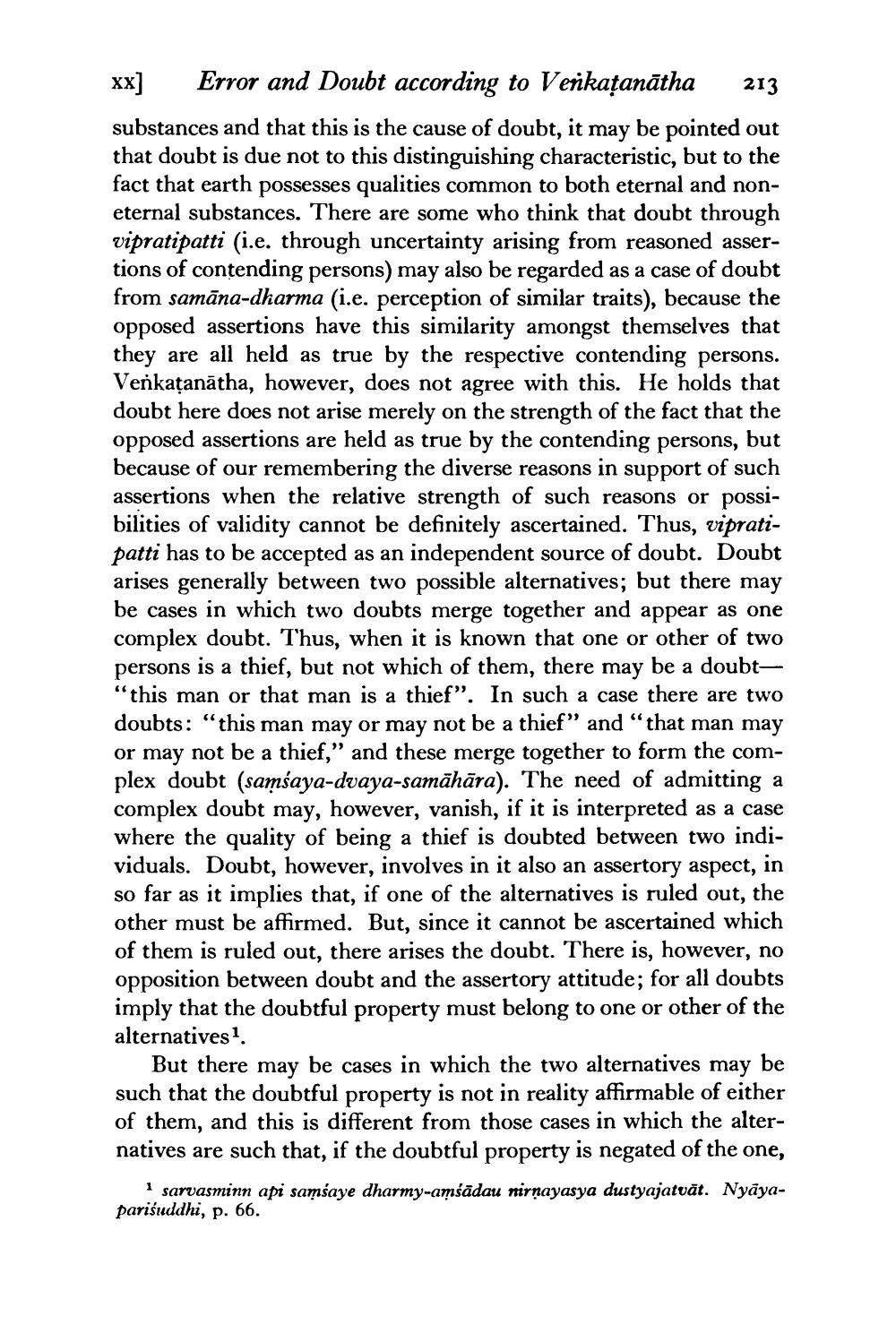________________
xx] Error and Doubt according to Venkațanātha 213 substances and that this is the cause of doubt, it may be pointed out that doubt is due not to this distinguishing characteristic, but to the fact that earth possesses qualities common to both eternal and noneternal substances. There are some who think that doubt through vipratipatti (i.e. through uncertainty arising from reasoned assertions of contending persons) may also be regarded as a case of doubt from samāna-dharma (i.e. perception of similar traits), because the opposed assertions have this similarity amongst themselves that they are all held as true by the respective contending persons. Venkațanātha, however, does not agree with this. He holds that doubt here does not arise merely on the strength of the fact that the opposed assertions are held as true by the contending persons, but because of our remembering the diverse reasons in support of such assertions when the relative strength of such reasons or possibilities of validity cannot be definitely ascertained. Thus, vipratipatti has to be accepted as an independent source of doubt. Doubt arises generally between two possible alternatives; but there may be cases in which two doubts merge together and appear as one complex doubt. Thus, when it is known that one or other of two persons is a thief, but not which of them, there may be a doubt"this man or that man is a thief". In such a case there are two doubts: “this man may or may not be a thief” and “that man may or may not be a thief," and these merge together to form the complex doubt (samsaya-dvaya-samāhāra). The need of admitting a complex doubt may, however, vanish, if it is interpreted as a case where the quality of being a thief is doubted between two individuals. Doubt, however, involves in it also an assertory aspect, i so far as it implies that, if one of the alternatives is ruled out, the other must be affirmed. But, since it cannot be ascertained which of them is ruled out, there arises the doubt. There is, however, no opposition between doubt and the assertory attitude; for all doubts imply that the doubtful property must belong to one or other of the alternatives 1.
But there may be cases in which the two alternatives may be such that the doubtful property is not in reality affirmable of either of them, and this is different from those cases in which the alternatives are such that, if the doubtful property is negated of the one,
1 sarvasminn api samsaye dharmy-amšādau nirnayasya dustyajatvāt. Nyāyaparisuddhi, p. 66.




